"Becoming a tour player requires a lot more time time and effort than most ambitious golfers are willing to put in. Think about it this way; to consider a life as a tour player ask yourself whether you are willing to devote the next 10 to 20 years of your life pursuing this career choice, with at least 5 hours of practice 6 days out of 7, and playing 54 to 72 holes each week." 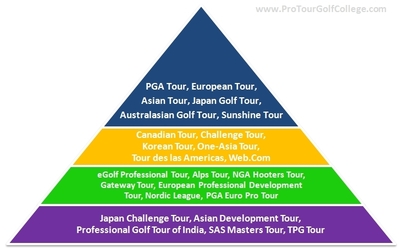 Click on the image to make it larger Click on the image to make it larger One of our students at Pro Tour Golf College was at an amateur tournament recently and overheard some of the young guys around the putting green talking about how they wanted to go to tour school in the next 12 months and "give tour school a try." These guys were all on very low handicaps of scratch or better and want to play golf for a living, which is completely reasonable and understandable, because there are plenty of tours to play on, and lots of dollars on offer, if you are good enough to earn it. And that’s the central point here; if you are good enough. And most of them aren't...yet! The trouble is that for every guy or gal that makes it onto a golf tour and actually earns enough income to keep their card, most will fail over and over. That’s right, most of the golfers that go to tour school will not play good enough to get a card, and those that do, very few of them will last on tour longer than 3 years, and the majority will have to go back to tour school again in 12 months time. So why is there such a high rate of failure in young golfers becoming good enough to play golf on a professional tour successfully? A Questionable Level of Commitment The obvious reason is that they simply aren't good enough to compete at pro tour level. Being a good amateur in most cases translates to a bottom to mid-level tour player. Shooting around par for 4 rounds in amateur tournaments won’t make you a dime in a 4 round pro tournament most of the time. But it's actually more than just the playing standard that is required to be a professional, it's the attitude of "I'm going to give tour school a try" that is more the problem. That doesn't sound very professional does it? You don't give tour school a try; it is a long term career choice - a long term view of where you want to take your game. Short-term thinking in this case is safety thinking, and it really questions someone's true level of commitment. "If I don't qualify for the tour, I'll go get a job." That thinking is a recipe for failure, not just in golf, but also in life. Giving the pro tour a try suggests that you think you have a chance at it, but if it doesn't happen, you'll go do something else. You would be better off taking the second option in our opinion, if this is your thinking, because you won't become a successful professional golfer with that type of attitude. Why? It's simple; no one who has ever made it to the top of professional golf (or is in the process of doing so) has such a low level of commitment to being a great golfer. You should be totally committed to not just qualifying to get onto a pro tour, but also to become A SUCCESSFUL GOLFER ON TOUR. 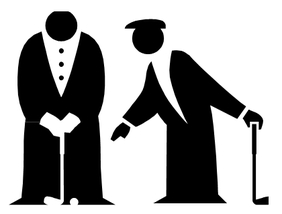 Professional Golfer (Tour Player) or Golf Professional We find that a big part of the problem in our experience starts with the fact that there’s virtually no school or college for educating prospective tour players (apart from ours) where you can learn, develop and acquire the knowledge, attitude and tour grade skills required to become a successful tour player. There are lots of golf swing academies that claim they develop golfers for the pro tour, but very few of them have a holistic curriculum designed for life as a tour player. When you go to the websites of the professional tours like PGA Tour or LPGA Tour to find out how to become a tour player they will give you the ins and outs of rules and procedures for entering the qualifying tournament, but they don't tell you how good you have to be to get onto a tour, and also what skills and attributes you require. There are lots of PGA business schools for learning how to become a golf professional, which is not nearly the same as being a professional golfer. A golf professional is someone who works in the golf industry in a retail position, golf operations, golf management, or is a golf teacher/instructor, (although less and less golfers are going through a PGA business schools to learn how to become a golf teacher today).
Now he is working at several odd jobs to service the debt from his time on tour, and because he lost his playing status on tour he will have to go back to tour school again in 12 months, and go trough the process again to earn a card to play for pay. But my point is that he will not give up on his dream at any cost, because this is his long term plan for his life. He will pay off his debts again, and keep working hard on improving his game so he can not only get back onto a pro tour, and become the successful professional golfer he truly wants to be. He has the all or nothing attitude that will take you a long way in life, whether it's on the golf course, or in fact anywhere else. Preparing to Play On Tour The reality for most young male and female amateur golfers is that they are far from ready to go to tour school. David and I have had many meetings with amateur golfers (and quite often their parents) over the years about whether they should turn professional, and in most instances we suggest that they should stay amateur for longer, until they can consistently score under par in the biggest amateur tournaments. Most of them don’t want to hear this advice however, and many turn pro anyway, and sadly for most of them all they end up with is a lot of heartache from missing cuts and pre-qualifiers, and a bloated credit card. 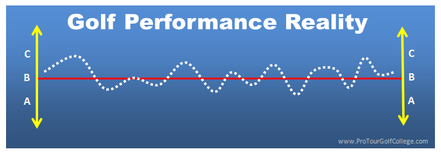 The key is to reduce C game scores and increase A game scores The key is to reduce C game scores and increase A game scores Enter the Sports Psychologist Do you think that really good golfers need a sports psychologist, mental skills coach, or performance specialist if the golfer already has the skills and the game to the level where they are making a great income playing golf on tour? No, the reason these practitioners exist in the main is because their clients don't play well enough (too much C game), or to make enough money when they compete in tournaments. That is not to say that they don't also work with highly successful golfers because they do, its just that they spend more time working with struggling golfers. The constant disappointment and grind of not playing good enough in tournaments wears the struggling golfer down physically and emotionally to the extent that they desperately search for someone to help them to deal more effectively with the ups and downs of life on tour, by teaching them self-management strategies and coping skills. In our opinion sports psychologists ideally should be involved much earlier in your development as a pro tour golfer, when you are preparing your game to pro tour standard, rather than when you have already acquired a huge load of negative mental baggage because you are failing at it. This would make their job so much easier, but most of their consulting work is managing the negative aspects of golf performance rather than the positive aspects. And like most things in life, if it took you a period of time to learn how to struggle on the golf course, then you should expect it to also take a period of time to turn it around, to get your game to a better place, where you are happier with the way you perform on the golf course in tournaments. No one has a magic pill that can take you from Struggle Street to Main Street without a lot of hard work on the right skills and strategies to get you there.  The Crystal Ball If you are an amateur golfer who is considering going to a tour school in the next 12 to 36 months and you had a crystal ball and could see into your future 5 years from now, what would your life look like? Do you see yourself as a competent, confident and successful touring professional who's making a lot of cuts and banking a lot of good sized checks? If you are not seeing this type of future, you really should be. But maybe you are just a little unsure, you like the idea of being a successful professional golfer but you honestly don't know how to go about it. Here's the key question that you need to ask yourself right now (and answer) that is the starting point of getting onto the path to the pro tour: "What are the standards that I must achieve, and what are the specific skills and strategies I need to learn (that I don't currently possess to the level they need to be) that will give me the best opportunity to not only earn my tour card when I go to tour school in _____ (months), but will also ensure that when I get onto a pro tour that I can play well enough to stay there?" 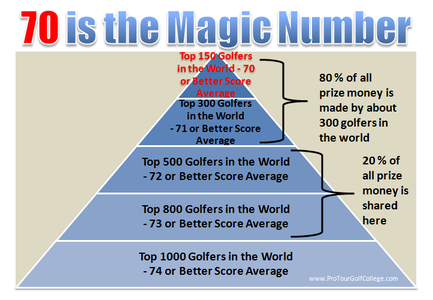 Click on the image to make it larger Click on the image to make it larger There's No Mystery, Just Follow the Trail There's no mystery as to why some professional golfers play better than others over a season. Successful professional golfers leave a trail of results behind them, just the same way as less than successful golfers. This trail helps you to understand what is required to produce lower golf score averages so you can make more cuts and larger checks. So well before you decide to go to tour school you need to get your preparation in order by amongst other things studying the results of successful professional golfers carefully to understand what is required to succeed on tour. Fortunately golf being a game of numbers means that there is plenty of statistics that you can study that will help you to design relevant and appropriate practice plans that can guide your development safely. There's nothing we like more than to see a young golfer with ambition who wants to pursue their goal of playing successfully on a professional golf tour. What we see all too often though is an ambitious golfer with a very poor plan (and often no plan) that leads to higher score averages that makes it impossible to become a successful professional golfer. So don't let this be you.
Jimmy
1/3/2014 02:06:10 pm
Great Article! Thank you for sharing! Comments are closed.
|
Archives
June 2019
|
Proudly Supported By
Copyright © 2011 - 2018 Pro Tour Golf College
Website Managed By Golf Performance Media
All Rights Reserved
Website Managed By Golf Performance Media
All Rights Reserved


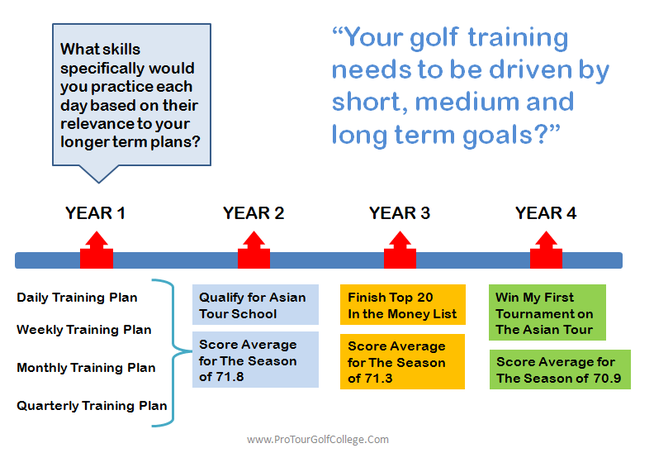

 RSS Feed
RSS Feed



